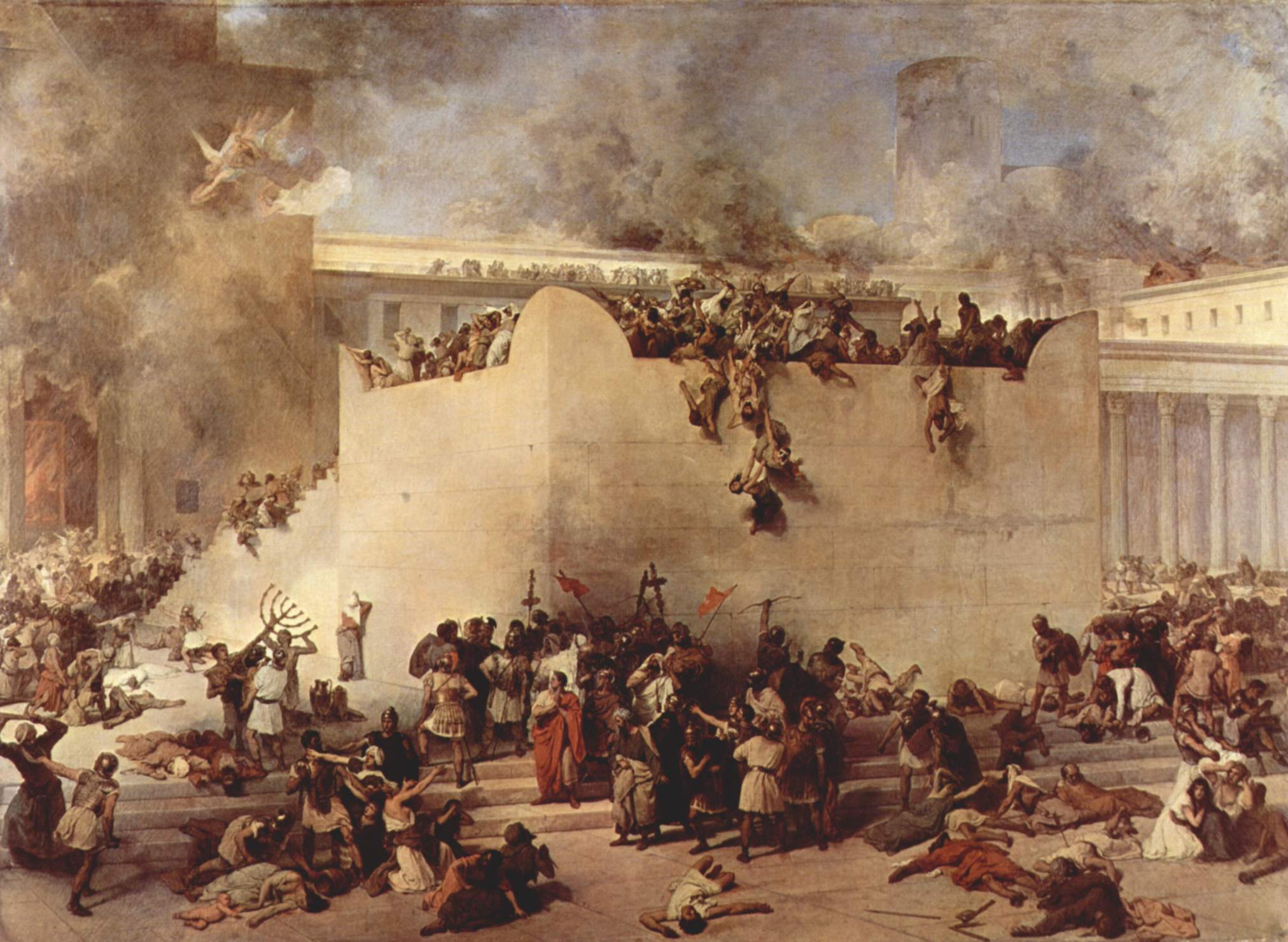As Jesus was leaving the temple, one of his disciples said to him, “Look, Teacher! What massive stones! What magnificent buildings!” “Do you see all these great buildings?” replied Jesus. “Not one stone here will be left on another; every one will be thrown down.” As Jesus was sitting on the Mount of Olives opposite the temple, Peter, James, John and Andrew asked him privately, “Tell us, when will these things happen? And what will be the sign that they are all about to be fulfilled?” (Mark 13:1-4)
Are the disciples marveling at the sheer massiveness of the construction project that was the rebuilding of the temple? Are they imagining their reigning with Jesus over a restored kingdom of Israel from those magnificent buildings? Both possibilities have been suggested. Regardless of the motivation for their wonder, Jesus would stun His disciples with His reply: Not one stone here will be left on another; every one will be thrown down. Naturally, the disciples are disturbed. The temple was the center of Israel’s civic and religious life. It was where the sacrifice was made to atone for sin. It was the most important place in the world. For the temple to be destroyed must certainly mean the end of the world. They can’t conceive of a world without the temple. When will these things happen?
Jesus does not answer their question as they, or we, would like Him to. It would have been much less frustrating if He would simply have said something like, “Titus will destroy the temple in August, in the year 70.” But He doesn’t say that, or anything remotely like that. The first thing Jesus does is to give a warning against false doctrine: Watch out that no one deceives you. Many will come in my name, claiming, ‘I am he,’ and will deceive many. Then rather than telling them what to look for to know when the end is to come, He tells them things that are not signs of the coming destruction – wars and rumors of wars…but the end is not yet. The temple is no longer important. It is no longer the center of religious life. Jesus, the Word made flesh, through whom creation was created, came to His own and His own rejected Him.[1] The one who is the image of the invisible God,[2] in whom all the fullness of the godhead dwells bodily,[3] came to His temple, His dwelling place in Zion. He came as a sacrifice for sin.[4] He was oppressed, and He was afflicted, yet He opened not His mouth; and the LORD hath laid on Him the iniquity of us all. As Jesus left His Father’s house for the last time, He knew that His sacrifice on the cross to atone for the sins of the world would make the sacrifices at the temple obsolete. Paying attention to this building and it’s demise is not important; paying attention to, and having faith in, the one who is the completion of the temple and it’s sacrifices, the true Christ, is. Jesus calls us to repent of our sin, to have faith in Him, and to keep His word.
Jesus tells His disciples, and everyone, to watch. “When you see ‘the abomination that causes desolation’ standing where it does not belong…then let those who are in Judaea flee to the mountains.” The Christians living in Jerusalem at the time of the siege in 70 AD remembered what Jesus said and did just that. In the time preceding the destruction of Jerusalem and the temple, a sort of dress rehearsal for the Last Judgment, they also kept Jesus’ other words, His doctrines, which simply means “teachings”. They remembered not to be distressed by wars and rumors of wars; they did not believe the false Christs and false prophets who came performing signs and miracles to try and deceive them; they preached the Gospel to all nations; and they stood firm to the end in the face of the persecution, division, and death brought against them because of that Gospel. In the words of St. Paul, writing to Timothy, they watched their life and doctrine closely. We are called to watch as well. We watch for the owner of the house to return, for He comes at an hour we do not know; we also watch our life and doctrine closely, for by it, as St. Paul says, we will save ourselves and those who hear us.[5]

No comments:
Post a Comment